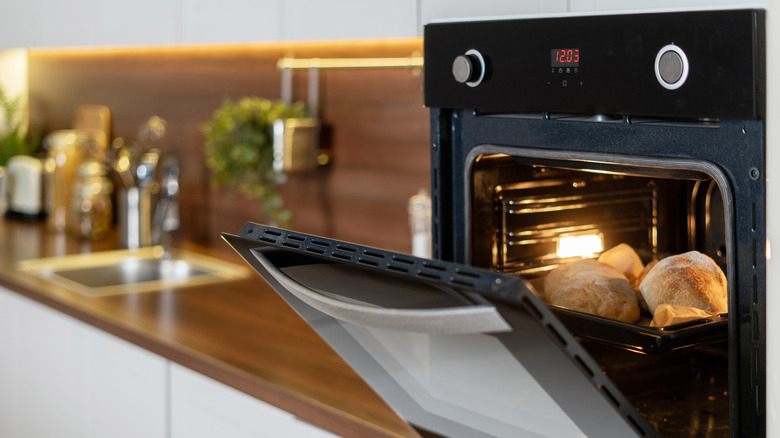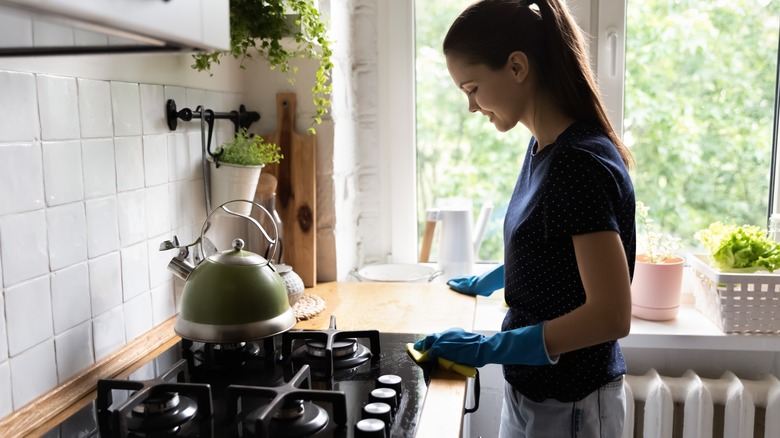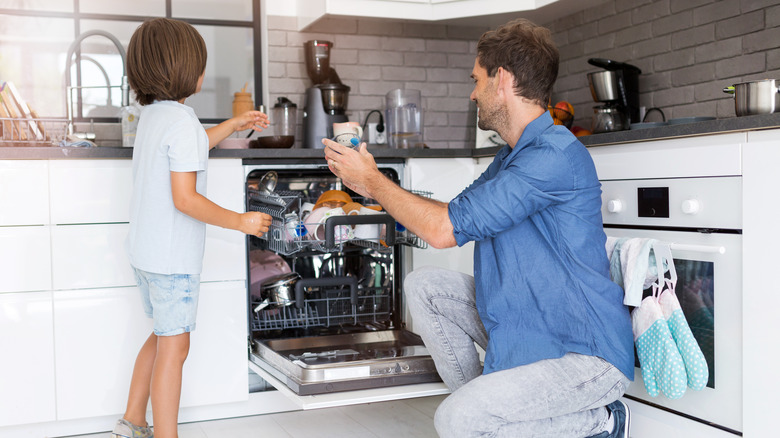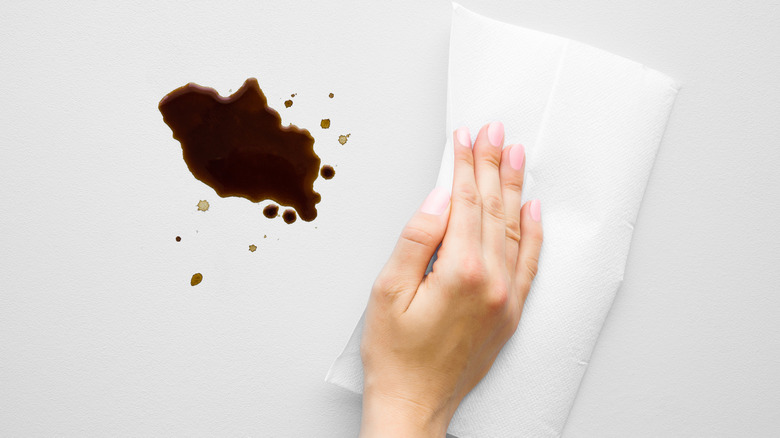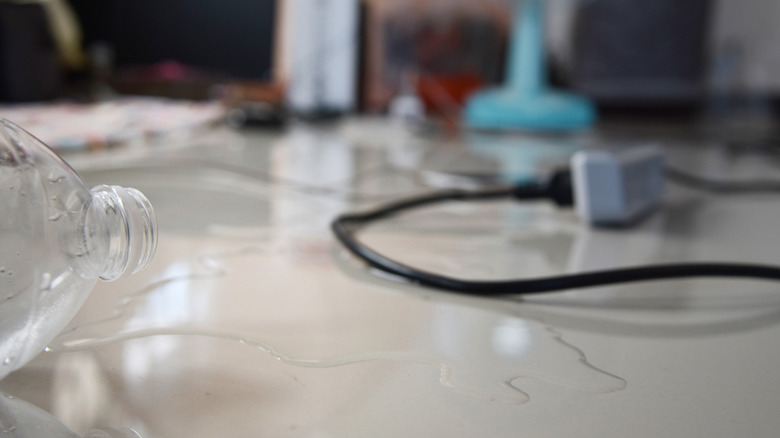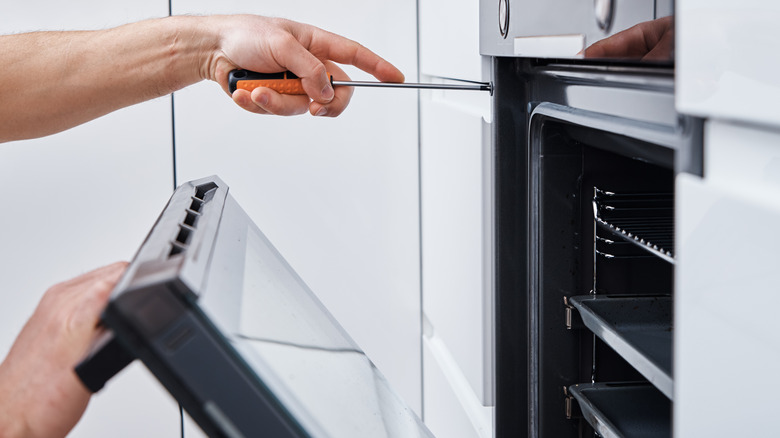A Cleaning Expert Tells Us The Most Important Steps For Taking Care Of Your Kitchen Appliances
From the refrigerator to the stove, we use our kitchen appliances just about every day, but how much attention do we put into actually maintaining them as the manufacturer recommends? Your schedule may be busy, but proper maintenance is still critical.
Blanca Aguirrezabal, the founder of The Blog Stuff, has extensive commercial experience in cleaning and organization for some of the world's top hotels and resorts. She shared some insights into the topic in an exclusive interview with House Digest. "Appliance maintenance is essential for several reasons," she says. "It can help extend your appliances' life, improve efficiency, and prevent potential hazards such as fires. In other words, you'll be able to get more use out of them if you take care of them properly."
Delta Appliances concurs, stating that appliances like the refrigerator, dishwasher, and oven can last 10 years or more, with well-maintained units potentially working longer than those that receive very little upkeep or preventative maintenance. Consider the strategies below guaranteed to make your appliances last.
Keep them clean
Every time you turn on the stove to cook something, you're creating an opportunity for the surface to become dirty, especially when a pot overflows. Household members going into and out of the refrigerator is all it takes to produce dozens of sticky fingerprints. Blanca Aguirrezabal recommends some basic first steps for maintaining appliances. "This means wiping down surfaces, removing food debris, and cleaning the interior of ovens and microwaves on a regular basis, according to the manufacturer's instructions."
Even when you have highly durable appliances, it's possible for them to suffer surface damage if not kept clean. "Prevent rust and corrosion by regularly drying wet areas, using rust-resistant cleaners, and storing metal items in a cool, dry place," she recommends. Make it a habit to wipe down surfaces with a dry paper towel at the end of the day to help absorb any of the problematic moisture that builds up, thus minimizing corrosion risk. It takes only a few seconds and yet it offers long-term benefits.
Protect against damage
Simply using your appliances appropriately and as directed can help. Blanca Aguirrezabal reveals, "This includes avoiding sudden temperature changes and not overfilling appliances. For example, if you have a dishwasher, don't overload it so that the dishes don't come out clean." It may help to read the owner's manual to find out how the manufacturer intended the dishwasher to be loaded. It may seem faster to just shove it all in, but if you have to redo the dishes by hand because they're not clean, it's no help at all. Instead, it adds to the time and frustration of washing dishes.
Aguirrezabal also states, "Don't try to toast oversized bread in your toaster — the bread may become lodged and potentially start a fire. The vents in the toaster can become blocked, and the bread can rip or tear, making it difficult to remove from the toaster and causing further damage." Buy appliances that fit your lifestyle, including a wide slot toaster that will accommodate your love for artisanal rustic Italian bread.
Wipe up spills immediately
It's not uncommon to open the refrigerator and see green pickle juice has somehow made its way under the produce drawers, or there's chocolate milk pooling on the shelf. These types of small problems become much larger challenges when you wait to take care of them. Blanca Aguirrezabal says, "If you don't wipe up spills immediately, they can become hardened and much more difficult to remove." Most of the time, a simple spill requires just a cloth or paper towel for absorption and it's well worth the quick attention and minimal effort.
Aguirrezabal continues, noting, "Also, if you leave spills for too long, they can begin to rot and produce mold or mildew. These can release harmful spores into the air, which can cause respiratory problems." That's especially true with spills that happen in areas hidden from plain sight, such as under countertop appliances or in the refrigerator when a bottle falls over or a takeout container spills. Being aggressive about cleaning up spills and other moisture issues is critically important in maintaining sanitary conditions.
Be smart about cords and electricity
The more kitchen countertop appliances you put out, the more challenging it can be to get rid of those annoying wires and cords. Blanca Aguirrezabal has a few recommendations. "Keep appliance cords tidy and out of the way. If cords are left in the open, they are more likely to become tangled or damaged. This can lead to appliance malfunction and/or costly repairs." She also notes that a cord left sitting on the counter may turn into a safety hazard.
Although they may be turned off, plugged in appliances are still pulling electricity from the socket. The best bet for many homes is to unplug small appliances when not in use, even if they remain stored on countertops. "This will not only consume less energy, but it also will help to prevent potential fires," the cleaning expert mentions. Of course, this doesn't apply to every appliance. "Some kitchen appliances shouldn't be unplugged (e.g., your refrigerator), but if you unplug what you can, such as the microwave or coffee machine, etc., it will save money," notes Aguirrezabal.
Inspect your appliances regularly
There's no doubt you're busy, and cleaning up the kitchen is often the last thing you have time to do after a long day. Yet, your appliances are valuable and need some regular attention. Blanca Aguirrezabal states, "If you don't check your kitchen appliances regularly, you run the risk of them breaking down. This can be a huge inconvenience and can also lead to costly repairs." Take one more look at the owner's manual to find out what type of preventative maintenance or signs of damage to look for in each appliance. Try to inspect them every couple of months.
It's worth taking this extra step, says Aguirrezabal. "Additionally, if your appliances are not running correctly, they may not be able to properly cook or clean your food, which can lead to health problems." The only thing worse than finding time to clean and do maintenance would be having to pay for expensive new appliances, especially when those you have could've potentially lasted longer.
